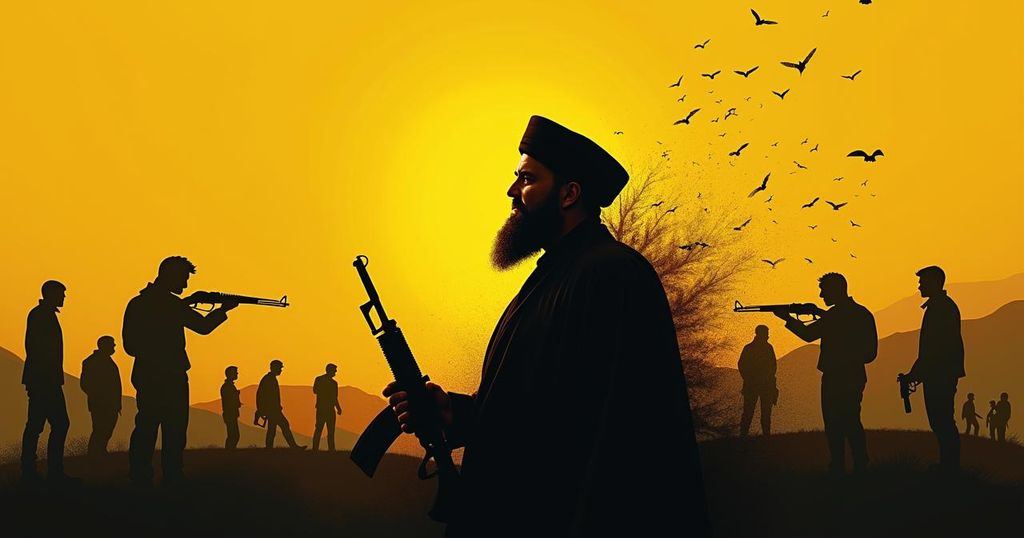Hassan Nasrallah has led Hezbollah for over three decades, transforming it into a powerful paramilitary group. Recent Israeli airstrikes targeted Hezbollah’s headquarters in Beirut, prompting Nasrallah to reaffirm his commitment to the conflict against Israel in support of Palestinian factions. He is a charismatic leader, respected among Shiite communities, with a history of strategic military engagement that has defined Hezbollah’s role in regional conflicts.
Hassan Nasrallah has been at the helm of Hezbollah for over thirty years, during which he has transformed the group into a formidable paramilitary entity in the Middle East. Following recent Israeli airstrikes that targeted Hezbollah’s headquarters and resulted in multiple casualties, Nasrallah’s leadership and strategic acumen come into sharper focus. The airstrikes on September 27, 2024, represent the most significant attack in Beirut in almost a year amidst ongoing hostilities between Israel and Hezbollah. Nasrallah, a 64-year-old sayyid (a title indicating descent from the Prophet Muhammad), has cultivated deep-rooted alliances with Iranian authorities and Palestinian factions, securing a revered position among Shiite communities in Lebanon and the broader Arab world. His background, marked by poverty and later religious education, prepared him for leadership within Hezbollah, an organization established in response to the Israeli invasion of Lebanon in 1982 with the support of Iranian Revolutionary Guards. Educated in theology and politically astute, Nasrallah rose quickly through Hezbollah, becoming its secretary-general in 1992 after the assassination of his predecessor, Sayyed Abbas Musawi. His tenure has been marked by significant military engagements, including the 2000 withdrawal of Israeli forces from southern Lebanon and the 2006 war with Israel, which further bolstered his reputation. His pragmatism contrasts with earlier extremist elements within the organization, demonstrating a blend of charisma and calculated strategy that has allowed Hezbollah to navigate complex layers of regional conflict, particularly during the ongoing Syrian civil war. In light of the recent escalation surrounding the Israel-Hamas conflict, Nasrallah has rallied support for military action against Israel, describing Hezbollah as a vital support front for Gaza. His statements reveal a commitment to sustained engagement in this conflict until a cease-fire is achieved, further illustrating his contributions to the dynamic of power in the region.
Hassan Nasrallah is a prominent figure in Middle Eastern geopolitics as the leader of Hezbollah, a Shiite militant group based in Lebanon. His rise to power occurred against the backdrop of the Lebanese civil war and subsequent conflicts with Israel, reflecting the broader struggles of Shiite populations in Lebanon and the influence of Iranian politics in the region. Nasrallah’s leadership has seen Hezbollah evolve into a significant military force, with deep ties to both Iran and various Palestinian factions, enabling the group to wield considerable influence in regional conflicts, including the Syrian civil war and recent hostilities with Israel. His personal background and theological education set the stage for his leadership philosophy and strategy.
In summary, Hassan Nasrallah’s strategic leadership of Hezbollah has greatly shaped the group into a powerful military entity within the Middle East. His background, connections with Iran, and political maneuvering reflect a complex figure who has navigated the turbulent waters of regional politics and sectarian conflict. The recent interactions in the ongoing conflict underscore his resolute stance against Israel and position Hezbollah as an integral player within the broader geopolitical landscape.
Original Source: apnews.com







